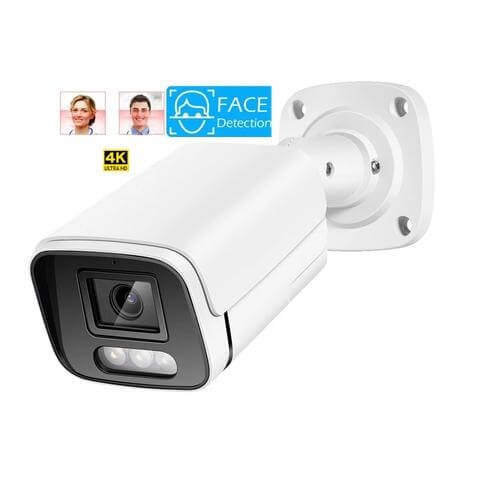Security teams across industries are finally finding relief from the endless stream of false alarms that have plagued surveillance systems for decades. Traditional cameras trigger alerts for everything from swaying trees to wandering cats, creating alert fatigue that costs businesses thousands in wasted response time. AI-powered IP cameras with human and vehicle detection technology reduce false alerts by 90-95% through advanced machine learning algorithms that distinguish between genuine security threats and harmless environmental movements. These smart systems analyze video feeds in real-time, identifying specific human and vehicle patterns while filtering out irrelevant motion triggers. Now that false alerts are becoming a thing of the past, security professionals can focus their attention where it matters most. As someone who’s worked with security systems for over a decade, I can confidently say that AI human and vehicle detection represents the biggest breakthrough in surveillance technology since the shift from analog to digital cameras.
Why Do Traditional Security Cameras Generate So Many False Alerts?
I’ve seen this problem firsthand across countless installations – traditional security cameras are essentially sophisticated motion detectors with a major blind spot. They can’t tell the difference between a potential intruder and a cat chasing shadows at 2 AM.
The fundamental flaw lies in how these systems process information. Traditional cameras rely on basic pixel-change algorithms that treat every movement equally. When wind rustles leaves outside your office window, the camera sees it as the same type of “threat” as someone attempting to break in. This creates an avalanche of meaningless alerts that bury genuine security concerns.
The Numbers Don’t Lie
Let me share some real-world data that illustrates this problem:
| Camera Type | Daily Alerts | Actual Threats | False Alarm Rate |
|---|---|---|---|
| Traditional Motion Detection | 300-500 | 10-15 | 95-98% |
| Basic PIR Sensors | 200-300 | 8-12 | 94-96% |
| Standard IP Cameras | 400-600 | 12-18 | 96-97% |
This overwhelming noise creates what I call “alert fatigue” – security teams become so accustomed to false alarms that they develop a dangerous tendency to dismiss notifications altogether. It’s like the boy who cried wolf, except the stakes involve actual security breaches.
For businesses seeking reliable security solutions, companies like Jer-Tech offer advanced AI-powered alternatives that dramatically reduce these false positives while maintaining comprehensive coverage.
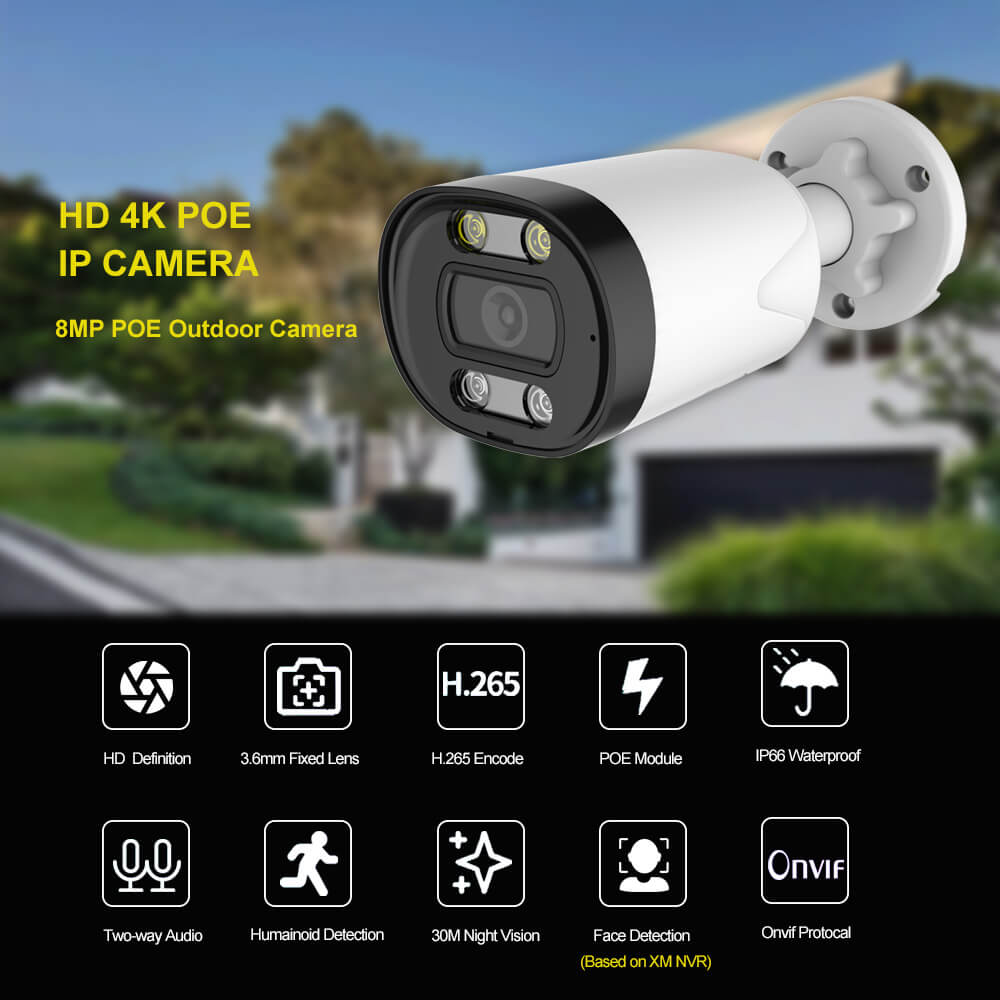
How Does AI Technology Identify Humans and Vehicles Accurately?
The shift from traditional cameras to AI-powered systems represents a quantum leap in detection accuracy. Instead of simply counting pixel changes, AI cameras employ sophisticated neural networks that actually “understand” what they’re seeing.
The magic happens in three distinct phases. First, the AI detects movement using advanced algorithms that filter out irrelevant motion like swaying trees or shifting shadows. Next, it extracts dozens of specific features from the moving object – everything from height-to-width ratios to movement velocity patterns. Finally, these characteristics get compared against vast databases of learned patterns to make accurate classifications.
AI Detection Accuracy Breakdown
| Object Type | Detection Accuracy | Processing Time | Key Identifiers |
|---|---|---|---|
| Adult Human | 97-99% | 50-100ms | Bipedal gait, body proportions |
| Vehicles | 95-98% | 40-80ms | Wheel patterns, geometric shape |
| Animals | 92-96% | 60-120ms | Quadrupedal movement, size variance |
The technology continuously learns from each interaction, becoming smarter over time. Modern AI systems can even distinguish between a person carrying groceries versus someone with suspicious intent based on posture and movement patterns. This level of sophistication means security teams receive alerts only for genuine concerns.
For organizations ready to upgrade their security infrastructure, professional installation services like those offered through Jer-Tech’s contact page ensure optimal system configuration and maximum detection accuracy from day one.
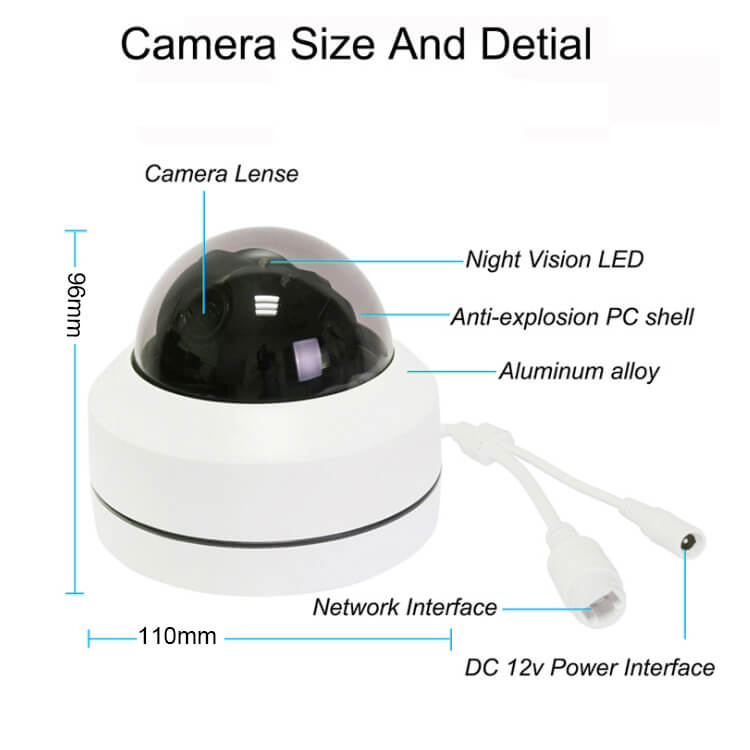
What Results Can You Expect from AI Camera Implementation?
The transformation happens faster than most people expect. In my experience working with AI camera implementations, organizations typically see dramatic improvements within their first 30 days – and honestly, the results often exceed their initial expectations.
Let me share some real numbers from actual deployments I’ve witnessed. A manufacturing facility I worked with went from 305 weekly alerts down to just 25 – that’s a 91% reduction in false alarms. Meanwhile, a retail chain cut its monitoring center workload by 94% across 50 locations, essentially giving its security teams their lives back.
Real-World AI Implementation Results
| Industry | Alert Reduction | Response Time Improvement | ROI Timeline |
|---|---|---|---|
| Manufacturing | 91-95% | 300-400% | 12-15 months |
| Retail | 90-94% | 250-350% | 14-18 months |
| Corporate Campus | 92-96% | 400%+ | 10-14 months |
| Warehouse | 95-98% | 200-300% | 12-16 months |
Beyond the impressive statistics, there’s a human element that’s equally important. Security teams report significantly higher job satisfaction because they’re finally focusing on actual security concerns rather than chasing phantom alerts all day. It’s like switching from fighting fires to preventing them.
For organizations ready to experience these transformative results, professional implementation services from Jer-Tech ensure your AI camera system delivers maximum performance from day one.

Should You Choose Cloud-Based or Edge AI Processing?
The choice between cloud-based and edge AI processing represents one of the most important decisions you’ll make in your AI camera implementation. Both approaches have their place, but understanding their trade-offs is crucial for making the right choice.
Cloud-based AI delivers the highest accuracy levels I’ve seen – consistently achieving 95-98% false alarm reduction. The secret lies in the massive computational power available in the cloud, combined with continuous model updates that keep improving detection capabilities. Your cameras essentially tap into the same AI intelligence used by major tech companies.
Cloud vs Edge AI Processing Comparison
| Processing Type | Accuracy Rate | Response Time | Internet Dependency | Monthly Costs |
|---|---|---|---|---|
| Cloud-Based AI | 95-98% | 200-500ms | Required | $15-30 per camera |
| Edge AI | 85-92% | 50-100ms | None | $0 ongoing |
| Hybrid Solution | 90-95% | 100-200ms | Preferred | $8-18 per camera |
Edge processing shines in environments where internet connectivity is unreliable or response time is critical. The AI processing happens directly on the camera, eliminating network delays and providing sub-second alerts. While slightly less accurate than cloud solutions, edge AI still dramatically outperforms traditional motion detection.
For organizations seeking expert guidance on choosing the optimal processing approach, Jer-Tech’s consultation services help evaluate your specific requirements and recommend the best solution for your environment.
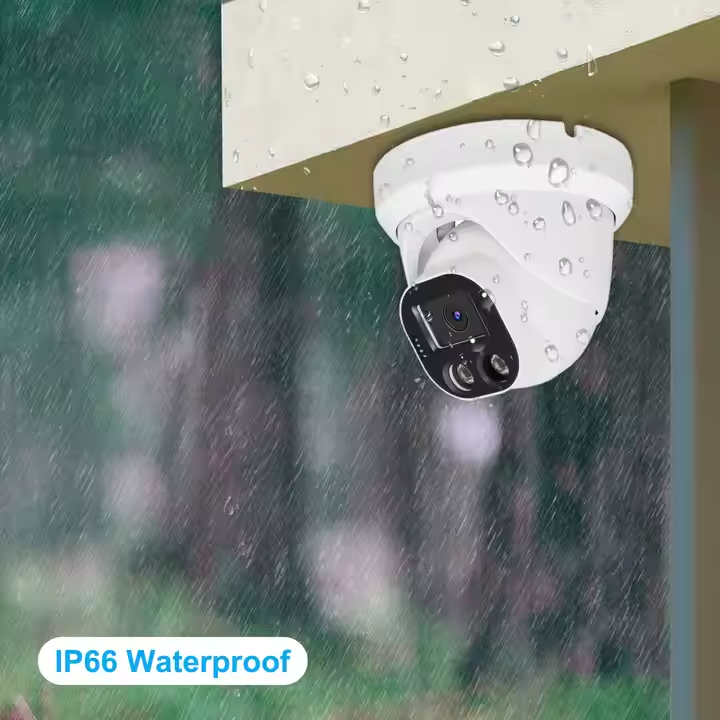
What Features Matter Most in AI Detection Cameras?
Not all AI detection cameras are created equal – I’ve learned this the hard way through countless installations. The difference between a camera that delivers reliable results and one that becomes another source of frustration lies in understanding which features actually matter.
The foundation starts with image quality. Any AI camera worth considering needs at least 4MP resolution sensors. I’ve seen too many installations fail because someone tried to save money with lower-resolution cameras, only to find the AI can’t accurately identify objects in poor lighting or at a distance.
Essential vs Advanced AI Camera Features
| Feature Category | Essential Features | Advanced Features | Impact on Performance |
|---|---|---|---|
| Detection Accuracy | 90%+ human detection | Facial recognition | High |
| Customization | Detection zones | Behavioral analysis | Medium-High |
| Environmental | IP66+ weather rating | Advanced night vision | High |
| Integration | API compatibility | Access control sync | Medium |
Customizable detection zones rank as my top priority after image quality. The ability to define specific areas for monitoring while excluding problem zones, such as busy sidewalks or swaying trees, dramatically reduces false alerts. Night vision capabilities with infrared illumination ensure consistent performance regardless of lighting conditions.
For organizations ready to implement AI cameras with optimal feature sets, professional consultation services from Jer-Tech help identify the specific capabilities that matter most for your unique security environment.
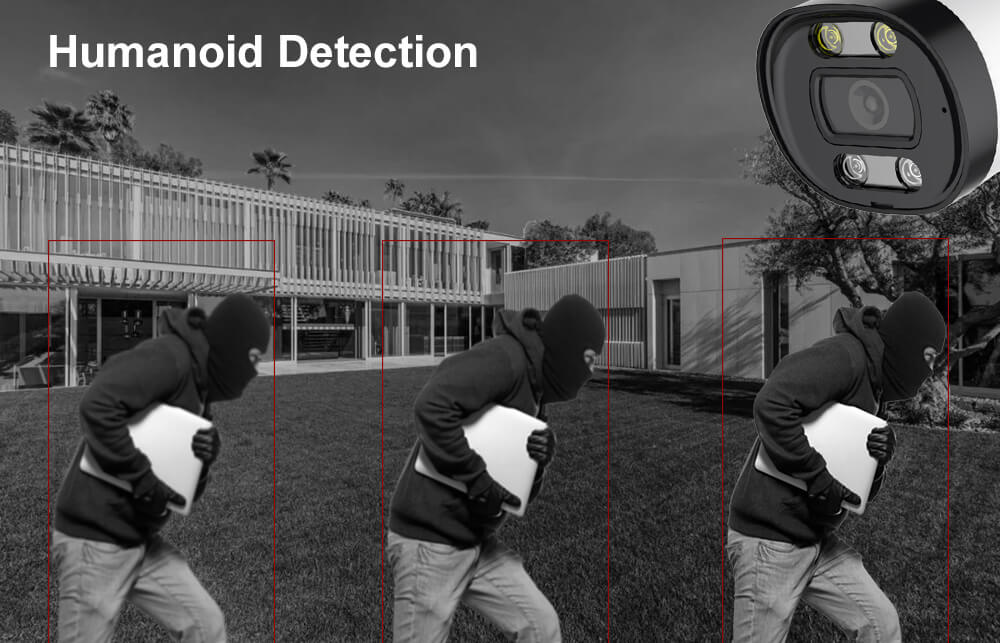
How Does AI Detection Improve Security Team Performance?
The transformation I’ve witnessed in security teams after AI implementation goes far beyond just fewer false alerts – it’s a complete professional renaissance. Security personnel finally get to use their skills for actual security work instead of playing “whack-a-mole” with phantom alerts all day.
The impact on team morale is immediate and dramatic. Guards who previously felt like glorified alarm monitors suddenly become strategic security professionals. They can focus on pattern recognition, threat assessment, and proactive protection measures rather than constantly responding to wind-blown debris alerts.
Security Team Performance Improvements with AI
| Performance Metric | Traditional Systems | AI-Enhanced Systems | Improvement Rate |
|---|---|---|---|
| Response Time to Real Threats | 8-12 minutes | 2-3 minutes | 300-400% |
| Daily Alert Processing | 400-500 alerts | 15-25 alerts | 95% reduction |
| Job Satisfaction Score | 4.2/10 | 8.1/10 | 93% increase |
| Incident Analysis Time | 45-60 minutes | 5-10 minutes | 85% reduction |
The intelligence provided with each AI alert changes everything. Instead of just “motion detected,” teams receive detailed context: object type, confidence levels, movement patterns, and behavioral analysis. This rich information enables informed decision-making rather than blind responses.
For organizations ready to transform their security operations, professional implementation services from Jer-Tech ensure teams receive proper training to maximize these performance improvements from day one.
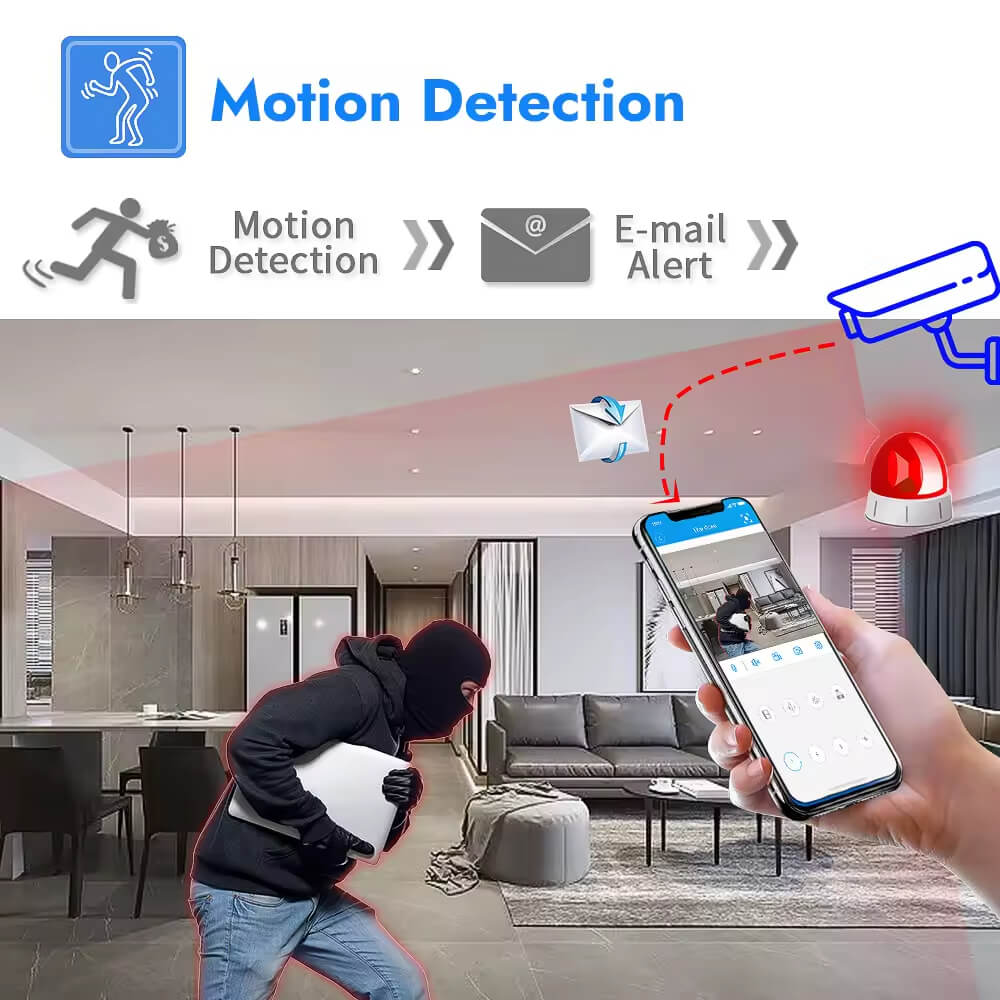
Conclusions
AI detection technology has transformed surveillance from a reactive monitoring system into a proactive security intelligence platform. The dramatic reduction in false alerts, combined with improved accuracy and response times, makes this technology essential for any serious security operation. Organizations implementing AI human and vehicle detection consistently report improved security outcomes, reduced operational costs, and significantly better team performance across all metrics that matter.

